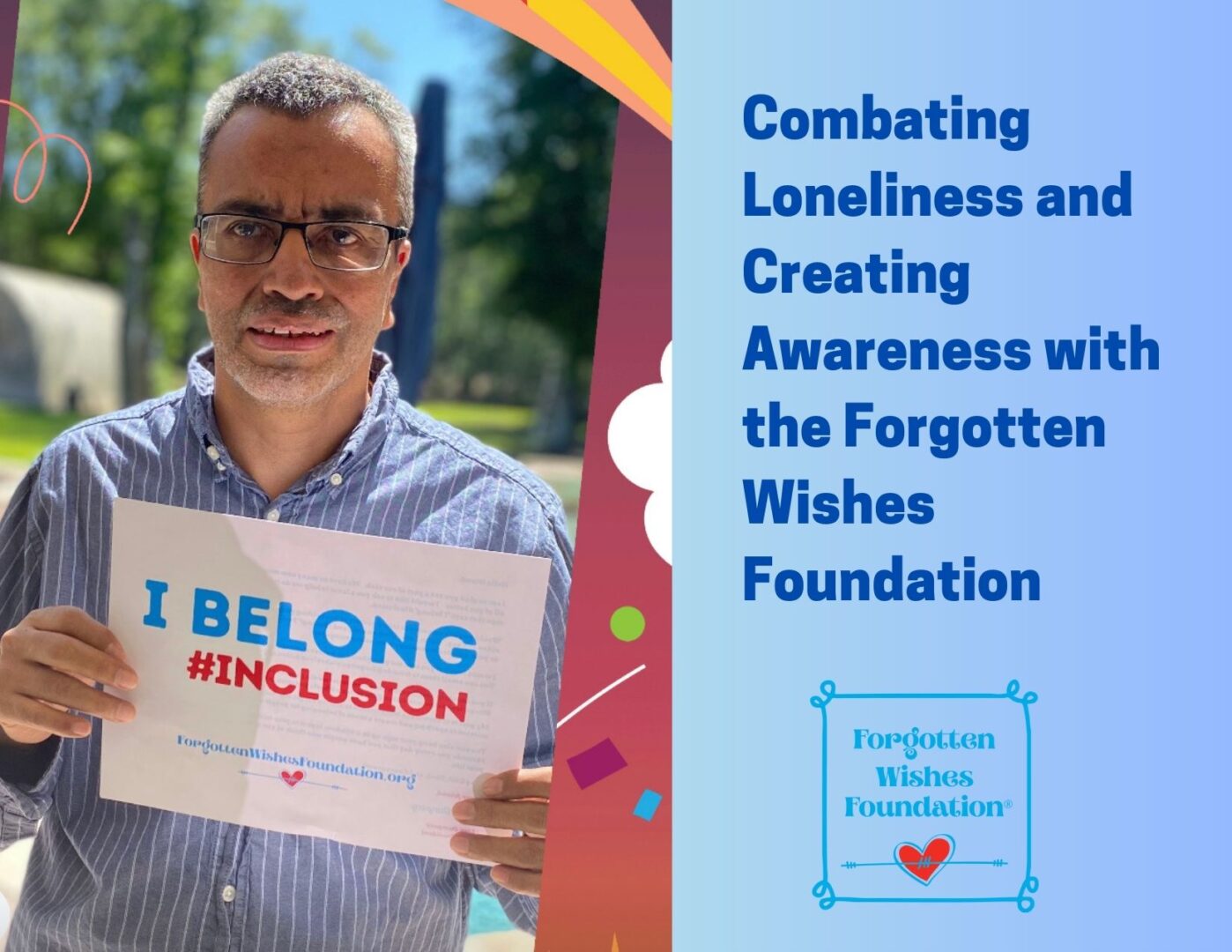
Combating Loneliness
In today’s world, we must recognize and celebrate the unique abilities and contributions of individuals with disabilities. They form an essential part of our society, and by promoting inclusivity and providing the necessary resources, we can foster a more equitable and compassionate world. The Forgotten Wishes Foundation is working to increase awareness about the disability community.
Today I’m sharing a small peek into the realities of living with a disability. As the Founder of the Forgotten Wishes Foundation, I want to shed light on the profound impact of loneliness on individuals with disabilities. Additionally, I want to emphasize the importance of a sense of belonging and inclusion in improving outcomes for people with disabilities.
One in Four Individuals
The prevalence of disability in the United States: Disabilities affect a significant portion of the American population. According to the Centers for Disease Control and Prevention (CDC), approximately one in four adults in the United States has a disability. That accounts for roughly 61 million people facing various physical, sensory, intellectual, or mental health challenges.
Living with a disability can present unique experiences and challenges beyond physical limitations. Individuals with disabilities often face social stigma, inadequate accessibility, limited educational and employment opportunities, and disparities in healthcare. Unquestionably, these obstacles can impact their overall well-being and quality of life.
Comparatively, daily activities that many people take for granted, such as navigating public transportation, accessing buildings, or participating in recreational activities, can be incredibly challenging for those with disabilities. Correspondingly, the need for assistive devices, accommodations, and specialized care can create financial burdens and logistical complexities, further exacerbating the difficulties.
Loneliness is Pervasive
Loneliness is a pervasive issue among people with disabilities. According to a study conducted by the University of California San Francisco, individuals with disabilities are three times more likely to experience loneliness compared to their non-disabled counterparts. Limited social interactions, reduced participation in community activities, and social exclusion contribute to this profound sense of isolation.
Furthermore, loneliness can have severe consequences for mental and physical health. It can lead to increased rates of depression, anxiety, and other mental health disorders. Additionally, it may exacerbate the impact of existing physical conditions and diminish their overall quality of life.
Studies have shown that inclusive environments lead to higher levels of educational attainment, increased employment opportunities, and improved physical and mental health for individuals with disabilities.
Forgotten Wishes Foundation
I created the Forgotten Wishes Foundation to combat loneliness and the feeling of otherness. In our small way, we can greatly impact the sense of belonging and feelings of connection in the community.
People with disabilities are an integral part of our society, and I believe it is our collective responsibility to ensure their full participation and inclusion. Finally, when we take the time to recognize the challenges they face, we can increase our understanding of how easily they can become isolated from the communities they live in.
I invite you to learn more about the Forgotten Wishes Foundation’s programs and initiatives on their website at www.forgottenwishesfoundation.org.
This article was written by Lisa Dempsey, Founder of the Forgotten Wishes Foundation.
